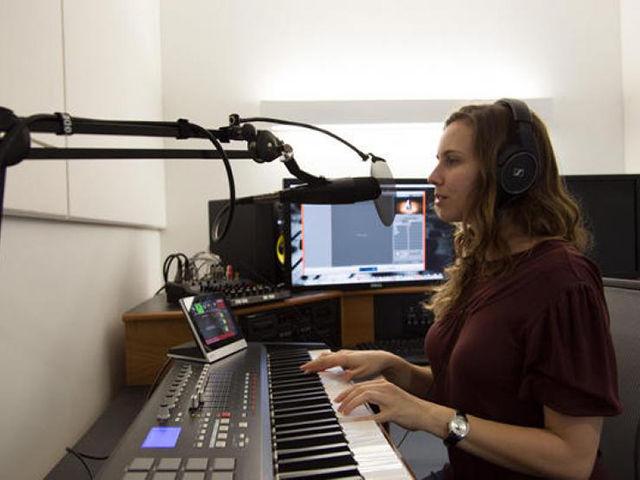NC State is a university that covers a wide variety of disciplines and sciences, fields and subjects, but this large group of options and opportunities generates a lot of noise and can make it difficult for some departments to stand out. One such department, the Music Department here on campus, is seeking to change this status, and make some noise.
For the past two semesters, the Music Department has been offering new classes in a wide variety of subjects that move away from traditional, classical music studies. These new classes focus on more modern genres, such as hip-hop and rock, as well as the production and business behind the music industry. It’s all a part of what Tom Koch, Interim Director of the Music Department, refers to as his three-prong plan.
“We feel that we have a responsibility as a department to start getting into an area of music that is very much student-centered and is very much in the mainstream now,” Koch said. “First of all, I want to create a set of courses that answer business and arts entrepreneurship, the production of it.”
Koch said that these more business-focused classes are the first prong of the Music Department’s plans. Koch said trying to find traditional music jobs for students in fields such as classical performance can be very difficult but that there are increasing opportunities in industry, entrepreneurship or technology in the music field. Therefore, the new courses of the department are catered around these subjects and work to help students find a job in the music field at a community or professional level.
One of the newly offered classes is “Introduction to the Music Industry,” a course that focuses on a wide variety of subjects related to music production such as publishing, Internet downloading and streaming, record distribution, artist management and copyright laws.
“The term should really be music industries because there is no such thing as one music industry, being that there are so many sub industries,” said Christopher Reali, professor of the course, Intro to the Music Industry. “The way I approach a class is I teach the class how a song gets from a performer’s brain into the market.”
Reali said his course encourages interactions with the Raleigh music scene and that he has many guests, such as Greg Lowenhagen, the founder of the Raleigh music festival Hopscotch, attend classes to speak to his students.
“The next prong is what we call the artistic creation through digital technology,” Koch said. “We want them to be able to use technology in songwriting and create something artistic from this.”
As part of this effort, the Music Department is offering a new class called “Songwriting using Digital Audio Workstations,” a class focused on learning how to use the variety of digital software involved in music production, such as Pro Tools. The goal of the class is to teach students various techniques used in the songwriting process such as editing, looping, equalization and rack hardware.
“Third is historical awareness of the popular traditions,” Koch said. “New courses in rock, hip-hop, country and R&B teach not only popular musical styles but the impact of commercialism, technology, economics, politics, gender and race on the evolution of popular music — issues anyone will encounter when pursuing a career in the music industry.”
Koch taught History of Rock I in the fall semester of 2015, a class covering rock music’s evolution from its beginnings in the early ‘50s to the punk and new wave styles found in the ‘70s, with a focus on American and British rock. Koch said History of Rock II will be taught by William Boone in the fall of 2016 and focus on ‘80s to present-day rock. Boone also taught another of the Music Department’s new pilot music history course, The Art and Culture of Hip-Hop.
“We examine social, cultural, and economic issues relevant to hip-hop, and students also get opportunities to engage creatively with the processes of hip-hop music-making,” Boone said. “I want students to be able to hear a hip-hop recording they’ve never heard before and situate it in terms of era, style and influence.”
The Music Department’s lineup for the fall of 2016 includes History of Rock II, Introduction to the Music Industry, Introduction to Arts Entrepreneurship and Songwriting using Digital Audio Workstations. Koch said the new courses being tested out are not being offered at the expense of the department’s traditional foundations of classical composition, vocal and instrumental performance and classical and world music history.
There is currently no music major available for students at NC State but the Music Department does offer two minors, one being a general Music minor, and one being an Arts Entrepreneurship minor. Additionally, students can choose a music concentration for the Arts Studies major offered through interdisciplinary studies.
Koch said he and the department are hoping to establish a Music Industries and Technology minor at some point in the future. Koch also said that any students with questions regarding the music department and these new courses are welcome to email him at tdkoch@ncsu.edu.








